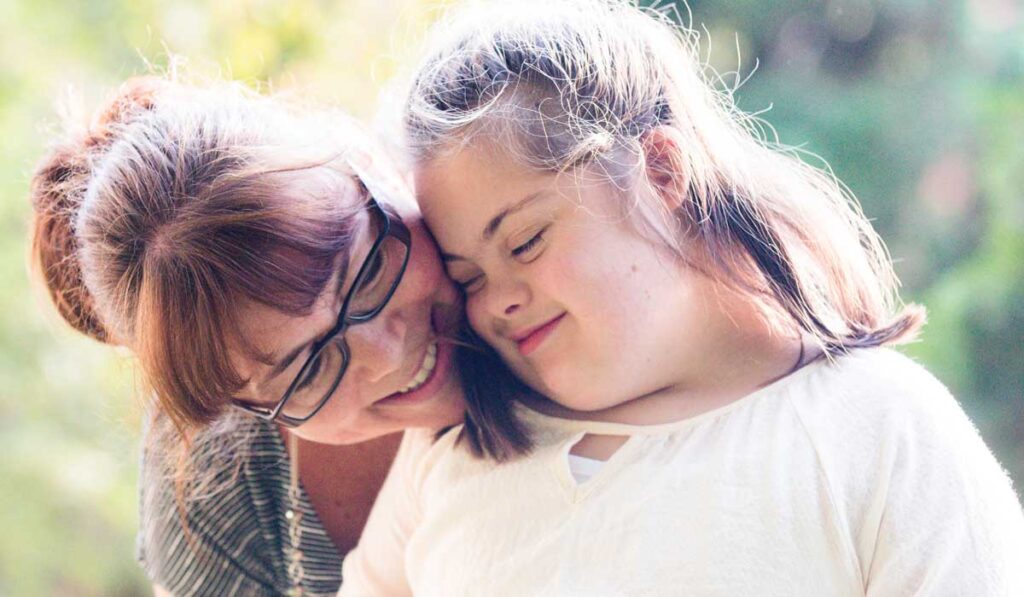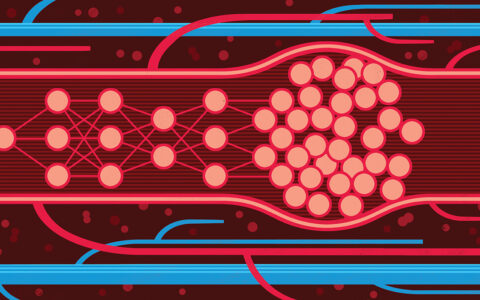Half of children with Down syndrome are born with congenital heart defects, yet heart transplantations for this population have lagged far behind those in candidates without this chromosomal abnormality, in part due to concerns over potentially inferior outcomes.
Justin Godown, M.D., associate director of pediatric heart transplantation at Monroe Carell Jr. Children’s Hospital at Vanderbilt, has challenged this assumption in his latest research.
Godown is first author on a multicenter study of waitlist and surgical outcomes, published in the Journal of the American Heart Association, which demonstrates that children with and without Down syndrome undergoing heart transplant have similar waitlist and post-transplant survival rates, as well as surgical and post-surgical complications.
“This study provides evidence to support that Down syndrome should not be considered an a priori contraindication to transplantation,” Godown said.
The Question of Candidacy
The need for heart transplantation in children with Down syndrome is broad-based. About half of the roughly 6,000 babies born each year in the United States with the genetic disorder have congenital heart defects. While some of these can be effectively repaired, more severe defects cannot. Additionally, higher rates of hematologic malignancies such as lymphoma and acute leukemia increase the risk of disabling heart damage resulting from cardiotoxic therapies.
Despite heightened transplantation need, the presence of extracardiac comorbidities like pulmonary hypertension, immunologic system dysfunction, malignancy, and obesity may be viewed as strong deterrents to risking surgery of this magnitude, Godown said. How these potential risk factors impact waitlist or post-transplant outcomes, however, has remained unclear.
“Around the world, we only found a small number of patients with Down syndrome who have undergone heart transplant since the 1990s,” Godown said. “Now there is a slow push in the field to asking, ‘Why aren’t we doing them?’
“Whether their physicians are not referring them because they don’t think they are candidates, or they are being denied for transplantation for other reasons, we just aren’t sure.”
Matched Control Study
With no large-scale studies demonstrating a contraindication for heart transplantation, Godown and colleagues proposed that this population may have acceptable waitlist and post-transplant outcomes, without increased risks of post-transplant infection, rejection, malignancy, or mortality.
“This study provides evidence to support that Down syndrome should not be considered an a priori contraindication to transplantation.”
Patients were identified from 17 centers across four countries, finding 26 patients with Down syndrome for inclusion. The median age at transplantation was 8.5 years old; 46 percent were male. Twenty-one patients had a history of congenital heart disease, with atrioventricular septal defects being the most common lesion. The top two indications for transplant were failed repair of congenital heart disease (16 patients) and cardiomyopathy secondary to anthracycline administration (five patients).
Matched controls were selected from the Organ Procurement and Transplantation Network database based on age, sex, diagnosis, year of transplant, and the need for ventricular assist device, extracorporeal membrane oxygenation or mechanical ventilatory support.
The researchers generated separate control groups for waitlist comparisons.
Equivalent Outcomes
The study examined outcomes for patients from their time on the waitlist to post-transplant survival, along with incidence of hospitalization for infection, rejection, and post-transplant malignancy.
Three of the children with Down syndrome died while on the waitlist, a similar proportion to the matched controls. All patients who survived to heart transplantation also survived to hospital discharge, and 20 were alive at the median 2.8-year follow-up.
No patients with anthracycline-induced cardiomyopathy experienced recurrence of their primary malignancy or any secondary malignancies. Outcomes for the study population and control group were similar regarding post-transplant infection requiring hospitalization, transplant rejection and post-transplant malignancy.
“None of the patients in this study underwent modification of standard center induction or post-transplant immunosuppression, and the number of patients with Down syndrome hospitalized for infection was similar to reports on pediatric heart transplantation patients overall,” Godown said.
Defying the Misconceptions
Functional indicators for most of the Down syndrome transplant patients and their families have been good, overall. Five require assistance for all activities, while 14 perform age-appropriate activities with some assistance, and three do so without assistance.
“A lot of the perceptions that we have about higher risks really did not show in the data. This work has negated some of the reasons why people might not consider sending patients with Down syndrome for transplant.”






